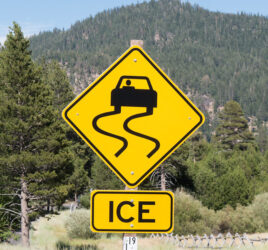
Does it help to hope (in the context of climate change)?
I am not against hope. But I certainly think that hope is overrated. Granted, hope is typically positively related to well-being (e.g., Lazarus, 1999). And that’s really nice. Hope makes us feel better about something bad happening to us. But… it doesn’t solve actual problems.
My point is this: Seeing possibilities for change is marvelous, but hoping for change can also make us see possibilities that are simply not there. Such as when we hope that lost ones will return to us, or perhaps that they might be able to communicate from beyond the grave. So, whenever there is hope, there is the danger of false hope: hoping for something that is not just unrealistic, but simply impossible.
This feeling better about something bad without actually solving the problem is why my colleagues and I were interested in researching whether hope helps us cope with important problems that urgently require solutions. For instance, hoping for peace seems to help people in conflict zones to be more open to solutions that might achieve peace (Cohen-Chen, Halperin, Crisp, & Gross, 2014). However, given the scale of such problems, the possibility for change may be low, if not impossible. In recent research, we have focused on what is probably the most fundamental problem of our time: climate change. In the face of such a seemingly unsurmountable problem, we asked: what is hope good for?
“Hoping for peace seems to help people in conflict zones to be more open to solutions that might achieve peace”
One answer to this question, presumably voiced by those who like hope, is that hope helps us to act and solve problems. And indeed, some research (e.g., Greenaway, Cichocka, Van Veelen, Likki & Branscombe, 2016) has found positive correlations between people’s hope for social change and their intention to do something to achieve it (e.g., sign a petition, join a protest, become a movement member). Hoping, then, becomes a problem-focused coping mechanism: appropriate for situations that, through joint action, can be changed for the better, such as climate change (perhaps).
A different answer comes from those who suggest that hope may be overrated: Hope simply helps us to feel better when times are tough. Hoping then, in such cases, becomes an emotion-focused coping mechanism: nothing more can be done to fix the problem, and all that’s left is accepting the sad reality. For patients diagnosed with a fatal disease, for example, hoping helps them take advantage of the little time that remains (Lazarus, 1999). This helps them, but of course it does not solve their problem. By extension, then, hoping for climate change to change for the better may help ourselves (because we may feel better), but not the world (because we won’t act more strongly upon it).
To test what hope is good for in the context of climate change, we conducted three online survey studies (in 2016, 2017 and 2018) with more than 1000 American participants in total (Van Zomeren, Pauls & Cohen-Chen, in press). We focused on this country because, despite being a global powerhouse in matters of climate change, it has certainly not inspired much hope since the 2016 elections (e.g., see https://edition.cnn.com/2019/09/04/politics/trump-climate-change-policy-rollbacks/index.html).
“Despite being a global powerhouse in matters of climate change, the US have certainly not inspired much hope since the 2016 elections.”
Against this backdrop, in each study we randomly assigned participants to one of two experimental conditions: Before answering survey questions about their feelings of hope and intentions to act, participants read an official text that communicated either more or fewer possibilities for climate change to change for the better. In line with previous research, we then found that those in the former condition saw more possibilities and felt more hope than those in the other condition. The question, then, was whether they were also more willing to do something about it.
The straightforward answer across the three studies is simple: no. Stronger hope doesn’t increase the motivation to act. But it does make us feel better.
More specifically, hoping more for climate change to improve did not influence participants’ intentions to do anything about it (in terms of protest, petitions, membership in organizations, donations, and so on). Instead, more hoping helped them (as it made them feel better), but it did not help them do anything that would help the world. Hope helped people to cope with their own emotions, but not with the actual problem at hand.
“In the context of climate change, hope doesn’t increase the motivation to act. But it does make us feel better.”
My apologies for this rather hopeless conclusion. My point is not that hope is bad — I just think it is overrated. Hoping helps us to feel better about something bad, but it unfortunately does not solve the actual problem. From this we can then suggest something hopeful, perhaps: Motivational campaigns aiming for climate change action should not put all their money on raising hope (see also Hornsey & Fielding, 2016). Instead, we need to look beyond hope by focusing on empowering people to solve problems through joint action. And because climate change is one of the most fundamental social problems of our time, the need is both great and urgent.
NOTE. Image by 11066063 from Pixabay
References
Cohen-Chen, S., Halperin, E., Crisp, R. J., & Gross, J. J. (2014). Hope in the Middle East: Malleability beliefs, hope, and the willingness to compromise for peace. Social Psychological and Personality Science, 5(1), 67-75.
Greenaway, K. H., Cichocka, A., Van Veelen, R., Likki, T., & Branscombe, N. R. (2016). Feeling hopeful inspires support for social change. Political Psychology, 37, 89–107.
Hornsey, M. J. & Fielding, K. S. (2016). A cautionary note about messages of hope: Focusing on progress in reducing carbon emissions weakens mitigation motivation. Global Environmental Change, 39, 26-34
Lazarus, R. S. (1999). Hope: An emotion and a vital coping resource against despair. Social Research, 653-678.
Van Zomeren, M., Pauls, I. L., & Cohen-Chen, S. (in press). Is hope good for motivating collective action in the context of climate change? Differentiating hope’s emotion- and problem-focused coping functions. Global Environmental Change.



